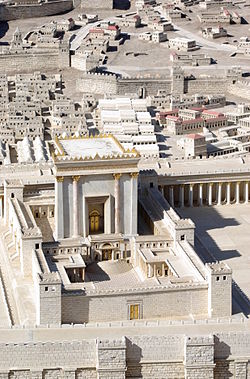

- The history of the Israeli-Palestinian conflict traces back to the late 19th century, when Zionists sought to establish a homeland for the Jewish people in Ottoman-controlled Palestine, a region roughly corresponding to the Land of Israel in Jewish tradition. [1][2][3][4]The Balfour Declaration of 1917, issued by the British government, endorsed the idea of a Jewish homeland in Palestine, which led to an influx of Jewish immigrants to the region. Following World War II and the Holocaust, international pressure mounted for the establishment of a Jewish state in Palestine, leading to the creation of Israel in 1948.
- The establishment of Israel and the war that followed and preceded it led to the displacement of hundreds of thousands of Palestinians who became refugees, sparking a decades-long conflict between Israel and the Palestinian people.[5] The Palestinians seek to establish their independent state in at least one part of historic Palestine. Israeli defense of its borders, control over the West Bank, the Egyptian-Israeli blockade of the Gaza Strip, and Palestinian internal politics currently make the Palestinians’ goal out of reach.
- Peace negotiations have occurred over the years, but a long-term peace agreement has not been reached. The conflict has been marked by violence, including terrorist attacks by Palestinian militants and military operations by Israel. The United States and other countries have played a key role in attempting to broker peace. Still, numerous obstacles remain, including Israeli settlements in the West Bank, the status of Jerusalem, and the ultimate fate of Palestinian refugees. from Wikipedia, the free encyclopedia.

- World War I and aftermath (1917–20)
- Because of a mutual defense treaty that the Ottoman Empire made with Germany during World War I, the Ottoman Empire joined the Central Powers as opposed to Great Britain and France. The possibility of releasing Palestine from the control of the Ottoman Empire led the new Jewish population and the Arab population in Palestine to support the alignment of the United Kingdom, France, and Russia during World War I. In 1915, the McMahon-Hussein Correspondence was formed as an agreement with Arab leaders to grant sovereignty to Arab lands under Ottoman control to create an Arab state for the Great Arab Revolt against the Ottomans. However, the Balfour Declaration in 1917 proposed to “favor the establishment in Palestine of a national home for the Jewish people, but that nothing should be done to prejudice the civil and religious rights of the existing non-Jewish communities in Palestine.” In 1916, the Anglo-French Sykes-Picot Agreement allocated to the British Empire the area of present-day Jordan, Israel, the Palestinian territories, and present-day Iraq. Jewish nationalists saw the Balfour Declaration as the cornerstone of a future Jewish homeland on both sides of the Jordan River. Still, it increased the concerns of the Arab population in the Palestine region.


SOURCE: Wikipedia
-
- 1312 BCE (
-
- )
-
- and
-
- from Egyptc. 1250 BCE–c. 1025 BCE
-
- lead the people. 1025 BCE–c. 1010 BCE
-
- c. 1010 BCE–c. 970 BCE
-
- c. 970 BCE–c. 931 BCE
-
- c. 960 BCE

-
-
- . 931 BCESplit between
-
- and the
-
- c. 931 BCE–c. 913 BCE
-
- c. 931 BCE–c. 910 BCE
-
- 840 BCE
-
- describes Moabite’s victory over a son of King
-
- of Israel.c. 740 BCE–c. 700 BCEprophecy of
-
- c. 740 BCE–c. 722 BCE The kingdom of Israel falls to the
-
-
- . 715 BCE–c. 687 BCE
-
- of Judahc. 649 BCE–c. 609 BCE
-
- of Judah institutes major reforms
-
- prophecy of
-
- c. 600 BCЕ
-
- 597 BCEfirst
-
- 586 BCE Jerusalem
-
- ,
- Second Temple period
|
This section needs additional citations for verification. (August 2020) |
- 539 BCE, Jews are allowed to return to Zion with Cyrus’s permission.

- History of Palestine.
- 1936-1939 Arab revolt in Palestine

- 1936-1939 Arab revolt in Palestine
- 1917: Britain conquers Palestine from the Ottomans. Gives support to the “national home for the Jewish people” in Palestine through the Balfour Declaration, along with an insistence that “nothing shall be done which may prejudice the civil and religious rights of existing non-Jewish communities.”
- 1918—The first significant Palestinian Arab nationalist organizations emerge: the mainly cultural Muntada Al-Arabi and the Damascus-based Nadi al-Arabi.
- 1920: The San Remo Allied Powers Conference grants Palestine to Britain as a mandate to prepare it for self-rule. Jerusalem’s riots against the Balfour Declaration assert a distinct Palestinian Arab identity.



